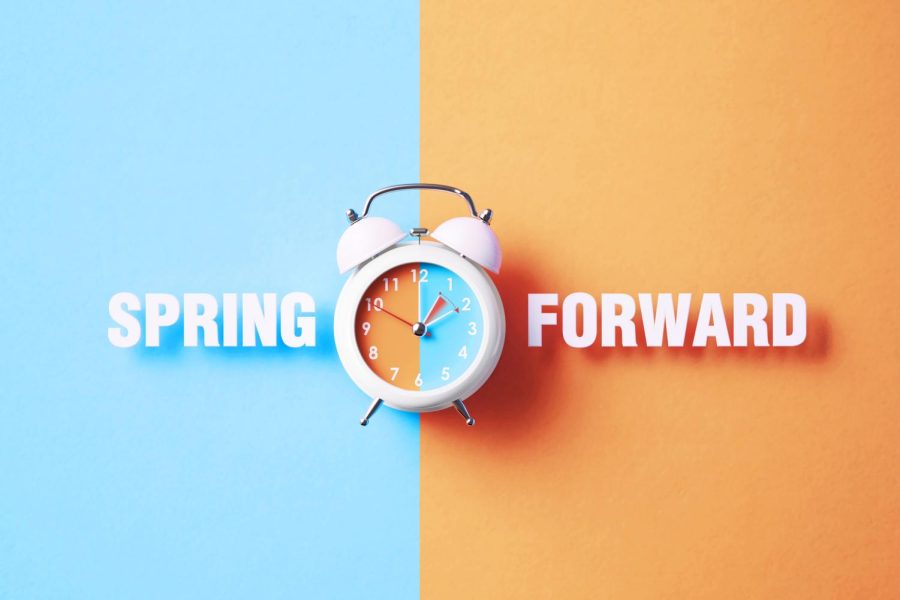House of Representatives should vote to make daylight saving time permanent
Getty Images
The Sunshine Protection Act would put an end to yearly “fall back” and “spring forward” time changes.
November 15, 2022
Ironically, the time has come for the United States to say goodbye to its tradition of toying with time. For the sake of sleep and uninterrupted dreams, our nation should move into daylight saving time and then leave our poor body clocks alone.
Twice a year, all states, with the exception of Hawaii and Arizona, observe a switch between daylight saving time and standard time by moving their clocks forward or back one hour.
However, on March 15, the U.S. Senate passed the Sunshine Protection Act in a unanimous vote. Now, the act waits in the House before it may move further.
If passed into law, the Sunshine Protection Act would end the tradition of turning our clocks backward and forward every six months. We would push our clocks forward one final time in spring, making daylight saving time permanent and never returning to standard time. Clocks across America would switch no more.
The extra hour of sleep that fall back gives us each autumn is heavenly. Very little brings quite as much delight as waking when one normally would to discover they may fall back into blissful slumber for another hour.
However, the extent of joy brought with fall back is hardly comparable to the extent of torture that is spring forward when precious time (and precious sleep) is snatched from the day.
Painful morning grumpiness is not what brought daylight saving time to the attention of Congress and is far from the only reason the clock-switch should be abandoned.
Multiple recent studies have found the clock-switch practice can have harmful and deadly effects.
”Collisions with deer increase by 16% in the week following the autumn clock change,” according to a report on daylight saving time by the University of Washington’s School of Environmental and Forest Sciences and College of the Environment.
Therefore, switching to permanent daylight saving time, would annually prevent 33 potential human deaths, 36,550 deer deaths and save the United States $1.19 billion according to the report.
Furthermore, when we spring forward, we are more likely to hit one another in vehicle collisions. According to a 2020 report by the University of Colorado Boulder, the risk of fatal traffic accidents increases by 6% after the spring clock change, an unfortunate side-effect of sleep deprivation and resulting disorientation. An end to the clock change, therefore, could prevent 28 accidents annually.
Beyond car crashes, clock switches pose other dangers to our health as well, such as increased workplace accidents, as found in a study by the American Psychological Association. Depression has also been found to increase following clock switches, according to a study by the University of Copenhagen, Denmark, as well as heart failure, according to a study by the University of Colorado and the University of Michigan.
Much like our moods, our bodies react negatively to sudden changes in sleep routine, especially when that change takes sleep away.
NIU student Sarah Ghallami, a sophomore majoring in nursing, said she was concerned about the stress an earlier sunset can create.
“Honestly, I think it kind of sucks … it gets dark sooner, and I feel like that’s when people’s depression sets in,” Ghallami said.
However, Ghallami also brought up another interesting perspective. With the sun setting earlier in the evenings, as it does in standard time, more people are forced to walk home after dark, a situation that can be scary for many.
“Walking home in the dark is super scary,” Ghallami said. “You never really think about it when you’re getting your classes. Like, if I sign up, for example, for a 3 (p.m.) to 5:50 (p.m.) lab, I don’t think about walking back in the dark towards the end of the semester.”
Should the Sunshine Protection Act be passed, time would be permanently set in daylight saving time, never to switch back to standard time, and students like Ghallami could leave evening classes before sunset.
Perhaps there is some sadness to be felt in bidding this tradition farewell. We may harbor a nostalgia for this strange practice we grew up with, but we must conclude changing biannually between daylight saving time and standard time is not worth the dangers (and headaches) that result.







